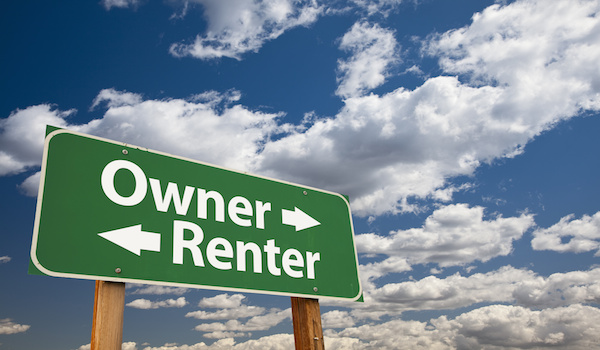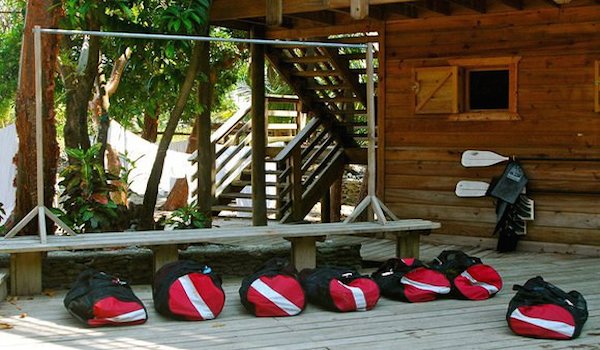What are the Pros and Cons of Owning Your Own Scuba Gear?
While most teaching organisations, retail centres, and dive centres recommend purchasing your scuba diving equipment, many divers are confused about whether or not they should invest in it. Are these sellers just trying to make money off of you, or do you really need your own gear to be safe and confident in the water?
Below are some unbiased insights into the pros and cons of owning your own scuba diving gear.
This will, hopefully, help you to decide whether or not you should purchase your own gear.

To own or to rent?
The Cost of Owning Gear versus Renting It
How committed are you to scuba diving? In other words, how often do you plan on going on scuba diving trips?
Will the majority of your dives take place while you’re on vacation or do you live in an area where you can access dive sites regularly right from home?
Ask yourself these questions before you determine whether the expense of the gear you’ll need is worthwhile or not.
If you’re only planning on diving maybe once, perhaps two times, a year, it’s probably not worth investing in expensive gear after all.
On the other hand, if you plan on going diving fairly regularly, you should consider that rental costs will eventually add up. Perhaps these costs will end up being higher in the long run than the costs of simply purchasing the gear outright for yourself and using it over and again.
Also read: What is the Differences Between PADI and SSI?
What to Buy and When to Buy It
When you rent your scuba diving gear, you use whatever the dive centre recommends, but when you purchase your own gear, you have to do your research and find gear that’s within your budget.
It can be very easy to end up spending a lot of money. But if you’re a smart shopper, you can purchase a pretty basic set of gear that’s reliable and completely functional at a great price. This set would include your snorkel, exposure suit, mask, fins, BCD, and regulator, but it may not include your dive computer.
No matter what type of gear you purchase, whether it’s basic or expensive, you should take care of it properly in order to make it last for years to come.

Full Dive Gear Bags
Also read: 3 Tips When Buying Scuba Dive Equipment for the First Time
To afford your gear, consider purchasing certain pieces one at a time until you have everything you need.
For example, rather than getting a full set right off the bat, you can begin with getting the essentials, such as your exposure suit, fins, mask, and snorkel, and then eventually investing in other items, like your dive computer, BCD, and regulators.
Scuba Diving Abroad
If you’re going to do a lot of your scuba diving abroad, you need to factor in the hassle of bringing along your dive gear despite luggage restrictions on flights.
Transatlantic and other long flights tend to give you a bit of a break in terms of weight restrictions, but this will ultimately depend upon the airline you choose.
Your typical dive gear set will take up the majority of an average luggage allowance, so you’ll more than likely end up paying extra fees as a result.
What you can do is pack items that are heavier, such as your regulator, into your carry-on luggage.
Choose airlines. that provide extra allowances for sporting equipment, even though this may also cause your costs to rise.
You’ll have to weigh your options and determine if the added costs of flying with your gear are cheaper than simply paying fees to rent your gear upon arrival. As long as you’re comfortable using unfamiliar gear, it may be more cost-effective to rent rather than buy your gear.
The good news is that some manufacturers offer lightweight scuba gear that’s designed specifically for travel so that you can reduce or even eliminate those extra fees.
This type of gear is usually best for use in tropical environments, as it may not be strong enough for rougher currents and colder temperatures. It may also be more expensive, so you’ll need to do your research and crunch some numbers.
Knowing Your Gear
The great thing about owning your own gear is the fact that you’ve personally chosen it to match your comfort.
So, in addition to thinking about the cost of the gear, you should also consider how great it’ll be to use the same equipment that fits you, and you know how to operate with ease.
One of the drawbacks of renting scuba gear is the fact that it may not fit you well and may reduce your comfort underwater.
If the mask doesn’t fit your face perfectly, you’ll be dealing with leaks. If your wetsuit isn’t tight enough, you’ll lose body heat.
If the BCD isn’t large enough, it may prevent you from achieving proper buoyancy.
All of these things could lead to discomfort while also increasing your risk of being in an accident.
Even the subtlest differences between brands can make you unsure of how to use the gear, especially during a panicked emergency.
But when you own your gear, you can become very familiar with it, so you’ll know exactly what to do during an emergency.
If your gear fits perfectly, you’ll be skilled and capable underwater, so you can focus on having fun, seeing marine life, and taking photos or videos. You’ll be safer, and you’ll be able to keep your buddy safer too because you’ll be able to act quickly.
Also, when you rent gear in other countries, you may not know how it’s been maintained, if it’s been serviced, whether the gear is offered in the right size, and who used the gear before you.
You may also want to consider that divers oftentimes urinate in wetsuits, cough through regulators, and spit in masks, so for health and hygiene, it’s better to get your own gear.
Maintenance of Scuba Gear
When it comes to maintenance of scuba gear, renting gear is a lot easier than buying your own.
Once you get out of the water, your rental equipment will be taken apart, washed, and packed without you having to worry about it.
If you own the gear, you’ll be responsible for all of its care and maintenance, both short term and long term.
You’ll need to rinse the gear after every dive, pack it up, transport it, and store it to keep it looking and functioning properly.
You’ll also need to service your regulators and BCD annually. Plus, your cylinders will need to be hydrostatically and visually inspected, and your dive computer’s batteries will need to be manually changed or given to a technician for replacement.
All of this maintenance, especially when it comes to servicing and inspections, will add up. And if you need repairs for damages, you’ll also be responsible for all of the costs.
Plus, you’ll have to find enough space to store your gear while you’re home, and you may need to rent a facility to do so. The only benefit to having to deal with all of this upkeep is that you may be inspired to go diving more often to make the most of your investment.
It’s up to you to decide whether the costs and responsibilities associated with owning your own scuba gear are worthwhile, especially when considering the peace of mind ownership brings and the cost-effectiveness and ease of rentals.
What are your thoughts about owning or renting scuba gear? Let us know in the comments below
Feel free to contact us. We have multiple partners that offer dive packages + accommodation and scuba lessons.
This article is published by The Scuba Page, the online magazine for Scuba Dive lovers around the world. The Scuba Page is part of RUSHKULT: the online booking platform for adventure sports. Visit the RUSHKULT platform to book your next Scuba Dive training, guided trip and accommodation.

Leave a Comment